Rohingyas go on 3-day strike
In a rare move, Rohingyas in Cox's Bazar camps yesterday began a three-day strike protesting what they say is the forcible issuing of 'smart cards' which exclude the word 'Rohingya'.
The distribution of the smarts cards -- prepared by the UN Refugee Agency and the government -- began before the repatriation was scheduled to begin on November 15.
However, officials involved maintain that nothing was forced and said the cards were just identity cards.
Shops run by the refugees were kept closed and some of the Rohingya volunteers in the camps stopped going to work in Ukhia and Teknaf, where some one million Rohingya live spread across 30 camps.
“I won't take this card. The Bangladesh government will send us to Myanmar if we take the smart cards,” said Mohammad Hares, 29, a resident of block C-2 at camp-1 in Kutupalong.
He claimed that he had spoken to his relatives in Rakhine who informed him that the Myanmar government was also issuing similar cards. His relatives also asked him and others in Kutupalong camp not to accept the cards.
“We won't take the smart cards even if we are shot dead here,” said Noor Hossain, 41, a Rohingya leader in Kutupalong.
“We think we have to remain as refugees for our whole life if we take this card and even if we go back to Myanmar.”
The protests come more than a week after Bangladesh postponed the start of repatriation after the refugees refused to return to Myanmar and staged a demonstration in the camps.
Their major demands include guaranteeing citizenship, ensuring security by the UN for those in Rakhine and repatriating them to their original households instead of the camps set up by Myanmar government.
Refugee Rehabilitation and Repatriation Commissioner Abul Kalam denied the claims of forcible distribution of the identity cards.
“These cards are registration cards that will be used as identity cards. The perceptions they have about these cards are totally baseless,” he told The Daily Star.
Abul Kalam said he went to the camps yesterday to talk to the Rohingya leaders and explained what the cards were.
There was no question of forcible repatriation, he added.
Asked about the Rohingyas' perception of the smart cards with biodata being shared with Myanmar and that Myanmar authorities were also imposing such cards, he said, “These cards are only for internal use in Bangladesh, not for sharing with any others.”
On the use of the word 'Rohingya' on the smart cards, Abul Kalam said it was not necessary to write it.
He said that only some shops at the camps were kept closed and that most Rohingyas, who work for the aid agencies in the camps, were on duty.
The Rohingyas, who have been living in Myanmar for generations, were denied citizenship, freedom of movement, health services and higher education since 1982. They were also not recognised as ethnic Rohingyas, but illegal migrants from Bangladesh.
The Myanmar government wants the Rohingya to accept National Verification Cards (NVC), saying it is a pathway to citizenship. However, the Rohingyas believe that accepting the NVCs will make them illegal citizens and they will eventually be denied citizenship.
Sixty-year old Rohingya Nurul Islam said he had to flee to Bangladesh thrice -- once in 1978, then in 1991 and last in 2017 when some 750,000 Rohingya fled the military campaign in Rakhine state of Myanmar.
“Should we continue the process of fleeing violence in Myanmar to Bangladesh and return? We want citizenship and then only we will go. We are the people of Myanmar and we are Rohingya. Our Rohingya identity has to be written in the smart cards,” he said.
The Rohingyas see the inclusion of their ethnicity in the cards as an issue of identity and survival, although the UNHCR and Bangladesh authorities did not include it.
“If Rohingya is not written on the card, we will be regarded as illegal migrants from Bangladesh, which we are not. We are Rohingya. We want our identity,” said Nurul Islam, a Rohingya leader in Kutupalong.
In a written notice, the Rohingya demanded that their ethnicity be included in the smart cards, and the authorities stop collecting their bio data or share the data already collected.
UNHCR Spokesperson in Cox's Bazar Caroline Gluck said the cards would help the Rohingyas access services and enables the agency to build a database that would make it easier to provide assistance, reports Al Jazeera on November 23.
The cards are also "an important milestone in contributing to securing the identities of Rohingya refugees in Bangladesh", she said.
The agency plans to finish the scheme by the end of this year, with 27,000 people registered so far.
Gluck also said the agency had worked with the Bangladesh authorities to hold community meetings with refugees and their leaders to dispel "false rumours that the card was linked to repatriation".

 For all latest news, follow The Daily Star's Google News channel.
For all latest news, follow The Daily Star's Google News channel. 

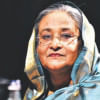
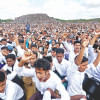
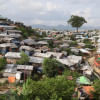
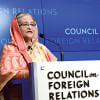
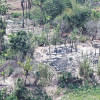


Comments